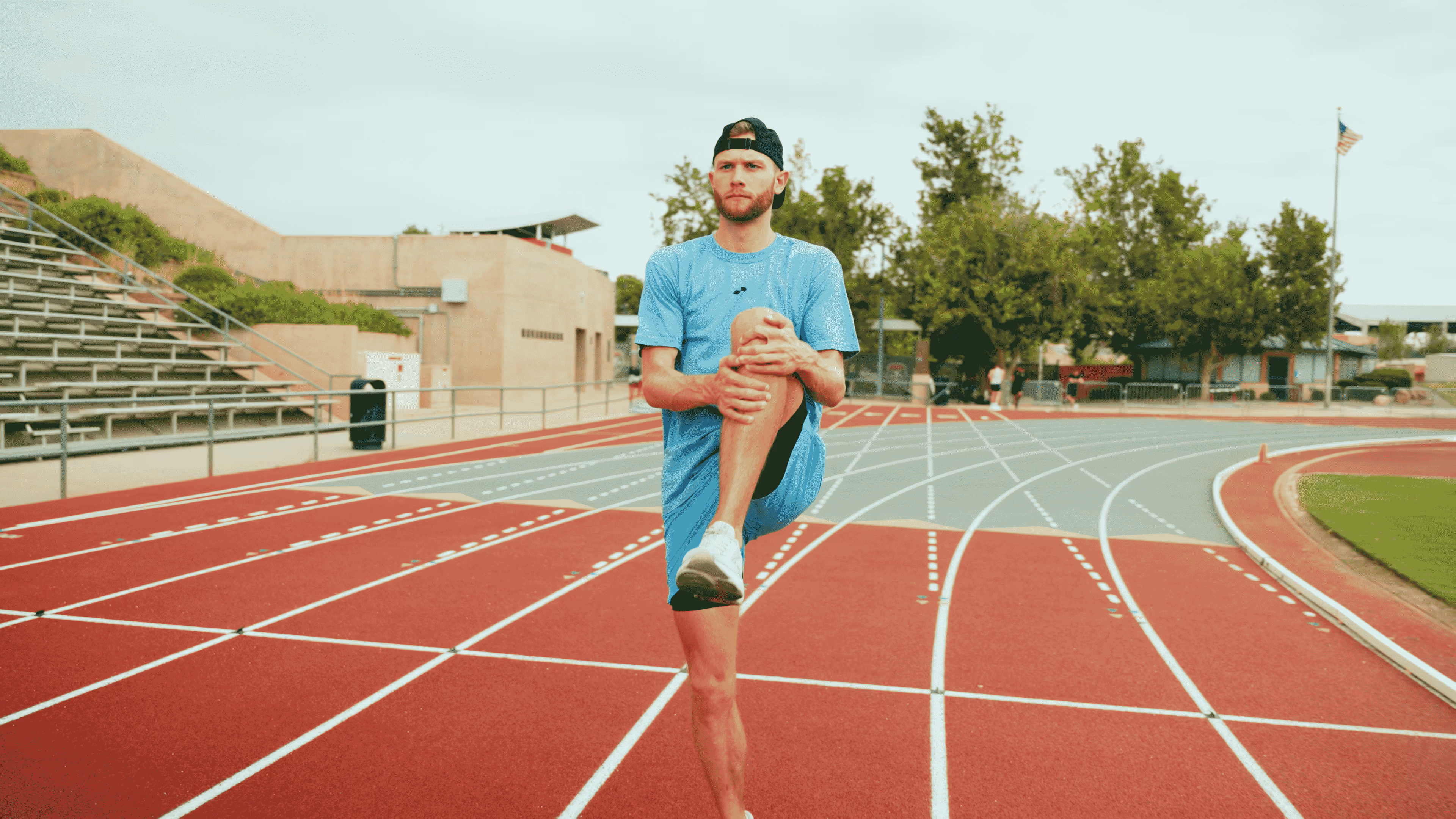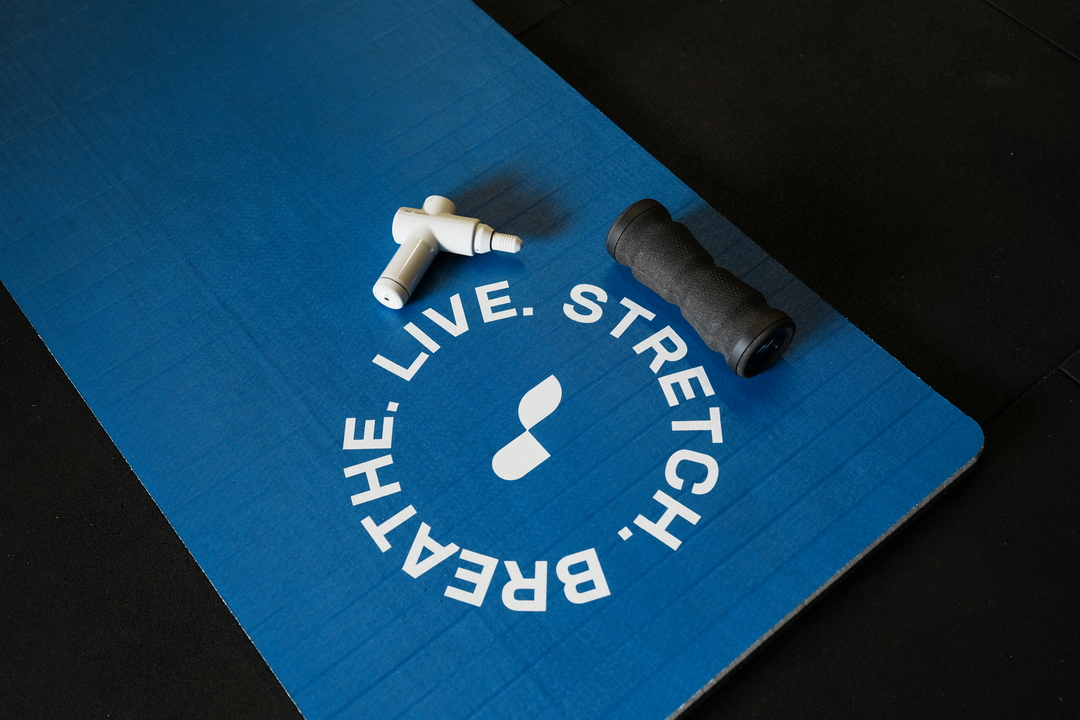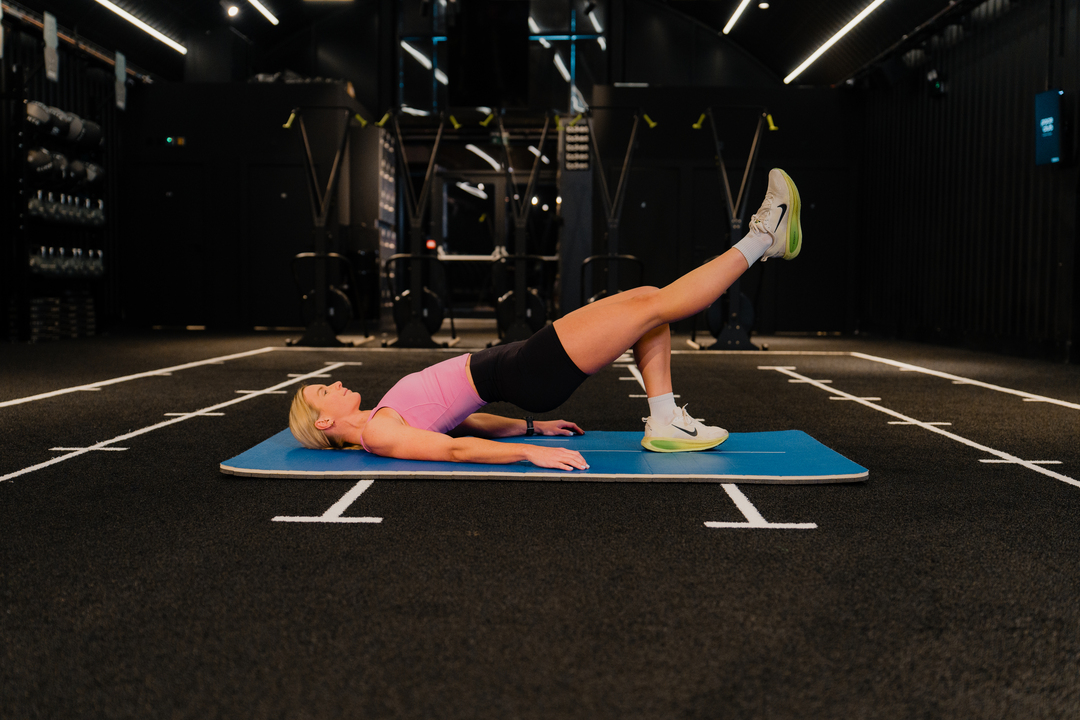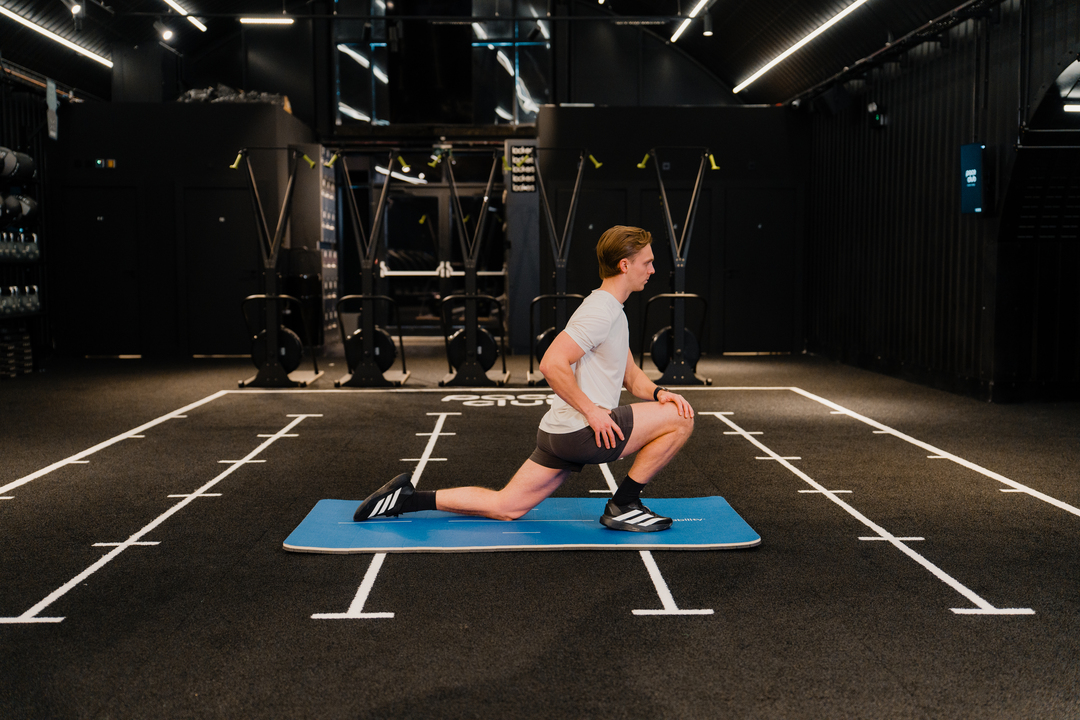Every athlete encounters challenges in their pursuit of peak performance. You may hit a plateau in your training. Or you are returning from an injury or working to prevent future injuries. No matter the case, if you want to enhance your game, it’s essential to understand how to improve sports performance. How to Increase Athleticism? This article will help you unlock your full athletic potential by training smarter, performing stronger, and consistently reaching new personal bests in your sport.
One effective way to improve your sport is to improve your mobility. Pliability's mobility app can help you achieve this goal. With Pliability, you can unlock your full athletic potential by training smarter, performing better, and consistently reaching new personal bests in your sport.
What is Sports Performance and How Do We Measure It?

Sports performance refers to an athlete's ability to execute specific physical and mental tasks at the highest level within their sport. Performance is multidimensional and often influenced by:
- Strength
- Endurance
- Speed
- Agility
- Technique
- Mindset
- Recovery
Improving sports performance means helping athletes get better at their sport. An athlete's sport may involve running fast, jumping high, hitting a ball, or completing a complex sequence of movements in a routine. These tasks can be broken down into physical and mental components, and improving sports performance means enhancing both aspects for optimal execution.
How to Measure Sports Performance
Tracking and measuring sports performance improvement is essential for identifying strengths, weaknesses, and areas that require adjustments. Various performance training methods, monitoring equipment, and fitness watches help assess different aspects of athletic ability, including strength, endurance, skill proficiency, and recovery efficiency.
Sports medicine specialists and nutritionists can analyze metrics like muscle glycogen stores, hydration levels, and caloric intake to ensure athletes optimize their body’s energy systems. Keeping track of progress through biometric data, video analysis, and psychological evaluations allows athletes to fine-tune their approach and enhance cognitive training, mental exercises, and strategic thinking for better in-game decision-making.
Skill: The Foundation of Sports Performance
Skill is the foundation of every sport, and refining technique is essential for improving athletic performance. Skill level can be evaluated through drills, gait analysis, reaction time assessments, and video playback of movements.
Consistent practice combined with sports physical therapy can help correct repetitive motion injuries and improve performance efficiency. Cognitive and brain training games can also enhance decision-making speed and precision, allowing athletes to react faster in high-pressure situations. Athletes should also use strategic thinking and mental exercises to improve focus and adaptability during competition.
Strength: Building a Solid Base for Sports Performance
Strength plays a crucial role in sports performance improvement by enhancing power, stability, and injury prevention. Strength assessments include knee strengthening exercises, one-rep max testing, grip strength measurement, and jump height analysis.
Athletes should also integrate functional exercises, blood flow restriction training, and sports medicine specialist consultations to develop a well-rounded strength base. Proper protein and caloric intake, guided by a sports dietitian, can further support muscle development and enhance protein synthesis. Ergogenic supplements like creatine and beta-alanine can help increase muscle endurance and overall strength capacity.
Endurance: Essential for Prolonged Athletic Activity
Endurance is critical for athletes who engage in prolonged physical activity. It can be measured through VO2 max tests, lactate threshold analysis, and high-intensity aerobic workouts. Endurance-focused athletes should incorporate interval and cross-training into their workouts to improve muscle glycogen stores and optimize oxygen efficiency.
Intra-workout fueling with electrolytes and sports drinks is crucial to maintaining fluid balance and preventing dehydration during extended training sessions. Proper nutrition and sports nutritionist recommendations boost the immune system, ensuring athletes can sustain high-performance levels without frequent illness or fatigue.
Recovery: The Overlooked Component of Sports Performance
Recovery is a key component of what improves athletic performance. Tracking sleep routines, hydration monitoring, muscle recovery, and post-exercise stretching help athletes perform optimally. Methods such as the Graston technique, cupping therapy, dry needling therapy, myofascial release, and soft tissue massages aid in quicker recovery and injury prevention.
Proper sports medicine interventions, including PRP therapy and blood flow restriction training, can help athletes recover from injuries faster and regain strength efficiently. Overtraining should also be avoided, as it can lead to shoulder impingement, UCL injury, and chronic fatigue, ultimately hindering performance rather than improving it.
Related Reading
- Benefits of Sports Massage
- How to Improve Athletic Performance
- Sports Performance Analysis
- Athletic Performance Testing
- How Long Does Alcohol Affect Athletic Performance
- How Does Iron Deficiency Affect Athletic Performance?
How to Improve Sports Performance for Better Outcomes

Understanding your limits is crucial in every sport. That’s because knowing your capabilities can help you pace yourself for better performance during competition.
It can also help you tailor your training to avoid injury and improve your overall performance. Learning your limits can give you a mental advantage over your opponents, as you can better control your emotions during competition.
Relaxation and Myofascial Release: Techniques to Enhance Performance
Relaxation and myofascial release are two techniques that can help improve sports performance. Relaxation helps reduce stress and tension in the body, while myofascial release helps release tightness and restrictions in the fascia (connective tissue).
These techniques can improve range of motion, flexibility, and strength. Relaxation and myofascial release can help improve recovery time after strenuous activity. For best results, practice these techniques regularly.
Warm-Up Properly: Get Your Body Ready to Perform
Proper warming up can improve sports performance in several ways.
- It helps increase your heart rate and blood flow to your muscles, which can help improve your athletic endurance.
- Warming up helps loosen your muscles and joints, making them more pliable and less likely to be injured during physical activity.
Warming up can help increase your mental focus and alertness, leading to better decision-making and execution during competition.
Train More Often: Consistency Will Improve Your Performance
Training more than once or twice a week will help improve your sports performance for several reasons.
- It will help increase your overall level of fitness. When you are fresh, you can work out at a higher intensity, leading to better results.
- It will help improve your technique. You can focus on your form and technique when you are not tired from a previous workout.
- It will help prevent injuries. You will be able to warm up and cool down properly after each workout, which will help your body recover better and avoid injury.
Proper Nutrition: Fueling Your Body
Eating healthy and having proper nutrition is crucial for our overall health. However, many do not realize proper nutrition is essential for optimizing sports performance.
There are three main areas that adequate nutrition will impact regarding sports performance:
- Energy production: Our muscles need energy to contract and generate force. This energy comes from the food we eat, in carbohydrates, fats, and proteins. Consuming adequate amounts of these macronutrients is important to maintain optimal energy levels throughout a game or competition.
- Muscle recovery: After exercise, our muscles are broken down and need time to repair and rebuild. Proper nutrition helps ensure that our muscles have the necessary building blocks (amino acids from proteins) to recover quickly and efficiently.
- Hydration: Staying hydrated is critical for all aspects of health, but it is crucial for athletes. Dehydration can lead to decreased energy levels, reduced cognitive function, and increased risk of injuries. By consuming a well-balanced diet that includes all the essential macronutrients, vitamins, and minerals, you can help to optimize your sports performance and reach your full potential as an athlete.
Train Your Brain: The Most Important Muscle
It is a scientific fact that our brain is the most important muscle in our body. It controls everything we do, from the simplest tasks to the most complex movements.
If we want to improve our sports performance, we must train our brains. There are many ways to do this, but one of the most effective is to use brain training games.
Boost Cognitive Performance with Brain Training Games
These games help to improve our cognitive skills, including memory, attention, and task switching. They also help to increase our processing speed and reaction time.
Many different brain training games are available, so finding one that suits your needs is essential. Some popular games include:
- Brain Age
- Lumosity
- NeuroNation
If you are looking to improve your sports performance, make sure to train your brain!
Drink More Water: Staying Hydrated
Water is essential for our bodies to function. Every cell, tissue, and organ needs water to work correctly. That’s why staying hydrated is critical; you should drink plenty of fluids daily. Water is necessary for our survival and can also help improve our sports performance.
When we exercise, our bodies sweat to help regulate our internal temperature. Sweating helps cool us down, but also causes us to lose fluids and electrolytes, leading to dehydration.
Why Staying Hydrated is Key to Peak Sports Performance
Dehydration can negatively impact our sports performance in several ways. For example, it can make us tired and weak, cause cramping, and make concentrating difficult. It can also lead to heat exhaustion and heat stroke, which can be dangerous.
That’s why drinking plenty of fluids before, during, and after exercise is so important. Doing so will help you stay hydrated and perform at your best. So next time you hit the gym or the playing field, bring up a water bottle and drink!
Proper Sleep: Building Better Athletes
Proper sleep has many benefits, including improved sports performance. Getting enough sleep helps your body recover from the day’s activities and can enhance focus and concentration. It can also help reduce stress and anxiety. All of these factors can lead to improved sports performance.
If you are not getting enough sleep, establish a regular sleep schedule and create a relaxing bedtime routine. Avoid caffeine and alcohol before bed, as they can interfere with sleep. Getting proper sleep is an essential part of maintaining optimal sports performance.
Supplements: Can They Help You?
Sports supplements are designed to help improve your sports performance. They can give you the energy, strength, and endurance to perform at your best. Sports supplements can also help you recover from training and competition more quickly. When used correctly, they can be a valuable tool in helping you to achieve your sporting goals.
A wide range of sports supplements is available on the market, so choosing those that are right for you and your sport is essential. Always consult a qualified sports nutritionist or doctor before using any supplements to ensure they are safe for you and will not interact with any medications you take.
Some common sports supplements include:
- Protein powders and shakes: Protein is essential for muscle growth and repair. Protein powders and shakes can help you to meet your daily protein requirements, especially if you are training hard or have a high-protein diet.
- Creatine: Creatine is a compound found naturally in the body. It can help increase energy levels, strength, and muscle mass.
- Beta-alanine: Beta-alanine is an amino acid that can help to improve performance during high-intensity exercise by reducing fatigue.
- Caffeine: Caffeine is a stimulant that can help to improve alertness, focus, and performance.
- Sports drinks: Sports drinks can help to replace lost fluids and electrolytes, which are essential for proper hydration.
Before using any sports supplements, it is essential to read the label carefully to ensure you are taking the correct dose and not exceeding the recommended amount. Supplements can be beneficial when used correctly but should not substitute for a well-balanced diet and lifestyle.
Take Care of Your Mental Health: The Forgotten Component of Sports Performance
Mental health is essential to take care of your mental health to improve your sports performance. Mental health includes our:
- Emotional
- Psychological
- Social well-being
It affects how we think, feel, and act. It also helps determine how we handle stress, relate to others, and make choices.
The Importance of Prioritizing Mental Health for Personal and Community Well-Being
Good mental health is essential for our well-being and the well-being of our communities. When we feel good mentally, we are more likely to be productive citizens and contribute to the overall health of our society. You can do many things to take care of your mental health.
Some of these include:
- Getting regular exercise
- Eating a balanced diet
- Getting enough sleep
- Connecting with others
- Doing things you enjoy
- Managing stress in healthy ways
It is important to remember that taking care of your mental health is a lifelong process. You cannot do it for a short period and then stop. It requires regular attention and effort. However, the rewards of good mental health are well worth the effort!
Vary Your Workouts: Avoiding Burnout and Injuries
Incorporating cross-training into a fitness routine can prevent repetitive motion injuries and improve overall endurance. Engaging in high-intensity aerobic workouts alongside strength, endurance, and recovery exercises creates a well-rounded training regimen.
High-intensity functional training (HIFT) enhances muscle:
- Strength
- Power
- Flexibility
Helping athletes develop sport-specific performance adaptations. However, while HIFT improves strength and flexibility, it may not significantly impact agility and endurance, making it essential to supplement with cardiovascular exercises and agility drills. By maintaining variety in workouts, athletes can target different muscle groups and optimize overall fitness levels.
Allow for Recovery Time: Rest to Perform Better
Overtraining can lead to burnout and injury, negatively impacting sports performance. Soft tissue massages, PRP therapy, cupping therapy, and post-exercise stretching are essential components of sports physical therapy that aid recovery and return-to-play protocols.
Proper sleep routines and stress management techniques further enhance the body’s ability to recover efficiently. Utilizing dry needling therapy and myofascial release techniques can help alleviate muscle tightness and improve overall mobility, ensuring athletes remain in peak condition.
Measure Your Performance: Track Your Progress
Using fitness watches and monitoring equipment allows athletes to track their progress in real-time. Metrics such as heart rate variability, muscle glycogen stores, and cognitive performance exercises can provide insights into training effectiveness.
Hydration monitoring and fluid intake tracking help prevent dehydration, ensuring optimal fluid balance for sustained performance. Advanced assessments, such as motion capture analysis and metabolic testing, can further fine-tune training approaches by identifying movement and energy expenditure inefficiencies.
Related Reading
- Adaptogen Benefits for Athletes
- Athletic Performance Counseling
- How to Improve Running
- How to Get Faster at Sprinting
- How to Run a Faster Marathon
- How to Increase Stamina for Running
- How to Improve Agility
Improve Your Flexibility with Our Mobility App Today | Get 7 Days for Free on Any Platform
Pliability offers a fresh take on yoga, tailored for performance-oriented individuals and athletes. Our app features a vast library of high-quality videos designed to:
- Improve flexibility
- Aid recovery
- Reduce pain
- Enhance range of motion
Pliability provides daily-updated custom mobility programs for those interested in optimizing their health and fitness. It also includes a unique body-scanning feature to pinpoint mobility issues. If you're feeling limited by pain or ability to move, Pliability aims to complement your fitness routine and help you move better.
Sign up today for 7 days absolutely for free, on iPhone, iPad, Android, or on our website to improve flexibility, aid recovery, reduce pain, and enhance range of motion with our mobility app.
Related Reading
- Best Vitamins for Athletes
- Strength Training for Athletes
- Cross Training for Swimmers
- Cross Training for Runners
- Best Peptides for Athletic Performance
- Breathing Exercises for Athletes
- Goal Setting for Athletes








